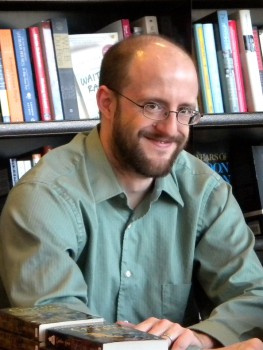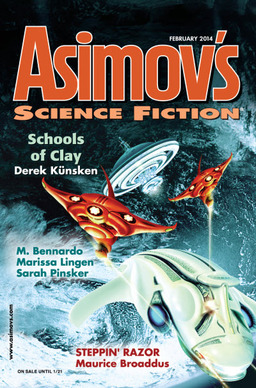The Economics of Short Fiction Writing

I am a writer, and have been for some time, although I live on a busy full-time job and I only started getting paid for writing in 2006. I feel like I had a long training wheel stage, although maybe because I’m only comparing myself to my expectations. My dreams of writing as a living, like those of many, started when I was a teenager.
There’s a lot of talk out in the world about making it as a writer, whether through traditional publishing, self-publishing, large press, or small press: how much marketing is needed, how much it costs, and whether it has any effect. It becomes a bit dizzying and pretty much bereft of data.
One bright light of hard data is Jim Hines’s yearly “Writing Income” on his blog. Hines is a fantasy writer and he’s blogged very frankly about his income since 2008, partly inspired by a John Scalzi post at that time. Scalzi admits he’s an outlier, but many of the financial points he makes are very good for anyone, including me.
The yearly Hines blog posts are also very instructive for anyone hoping to make a living as a writer. If you’re thinking (or dreaming) of making a living as a writer through the traditional publishing route, these kinds of posts are super-important for you to read. Here they are by year:
| 2007 |
| 2008 |
| 2010 |
| 2011 |
| 2012 |
| 2013 |
Like I said earlier, I have constantly felt I should have been the writer I am now much earlier, like during grad school. But I take some consolation in the idea that no one expects to sit down at a piano for the first time and be able to play a concert, as well as Stephen King’s advice that one must write a million bad words before the good ones come out. (My rough estimate is that I’m at about 900,000.) Artists have a similar idea, but I think it’s 10,000 bad drawings.
After two failed novels over a decade in my twenties, I decided I needed to learn faster and better, and turned (as the advice generally runs in the scifi/fantasy industry) to short fiction. I think I’ve gotten good at it, but haven’t seen a lot of posts on the income to be made from short fiction. It ain’t pretty, but it’s the slow making of a name, and getting better at the craft and the art.
In the same vein as Hines and Scalzi, I thought I’d open the kimono on the economics of being a short fiction writer around a full-time job.
| Year | Stories sold/ Reprints | New Stories Sold | Gross Income |
| 2006 | 1/0 | Tidal Maneuvers (On Spec) | $130 |
| 2007 | 2/0 | Beneath Sunlit Shallows (Asimov’s), Gifts of Li Tzu-Ch’eng (Black Gate) | $566 |
| 2008 | 1/1 | Getting High with Thomas the Apostle (sub-Terrain), Beneath Sunlit Shallows translation (Esli) | $186.75 |
| 2009 | 0/0 | None | $0 |
| 2010 | 0/0 | none | $0 |
| 2011 | 3/0 | To Live and Die in Gibbontown (Asimov’s), The God Thieves (Beneath Ceaseless Skies), Long Leap (On Spec) | $1,278.41 |
| 2012 | 1/2 | Way of the Needle (Asimov’s), The God Thieves (reprint), To Live and Die in Gibbontown (reprint) | $621 |
| 2013 | 4/1 | Schools of Clay (Asimov’s), Parable of the Clown (Blood & Water), The Dog’s Paw (Chilling Tales II), Juan Caceres in the Zapatero’s Workshop (When the Hero Comes Home II), Way of the Needle translation (Esli), Way of the Needle (Asimov’s Award) | $1,752 |
| 2014 (first six months) | 1/4 | Persephone Descending (Analog), Schools of Clay translation (SFWorld), The Dog’s Paw reprint (Pseudopod and Best Horror of the Year Six), Way of the Needle reprint (Escapepod) | $1,411 |
This little chart has a few takeaways, some of which are obvious, some of which aren’t:
- Selling more stories = more money (obviously)
- Selling to pro markets > Selling to semi-pro (duh!)
- Reprints are not a bad bonus – a few of my stories have netted foreign translation and English-language audio sales. This turns the occasional 6¢/word into a total of 7¢-10¢/word.
- Although this only captures 6 months of 2014, this is already a good year and I have a few more reprints and new stories in press (another Asimov’s, an anthology, a few more Chinese and Polish sales, and a novella I feel has some good chances of selling pro). So, 2014 should be the first year I crack $2000.
- Short fiction vs novels: The minimum SFWA rate for a novel is $2,000, which, despite being classified in some quarters as “a shitty deal” (see here for a funny, real world explanation of publishing deals), is still more than I’ve made in any one year. On the other hand, though, my last two sales to Asimov’s (say about 22,000 words) easily reach $2,000 when the reprint sales are included. On the other, other hand, though, short fiction will never pay a sustained income because all the sales I make are flat rates, whereas when novels sell more, royalties continue to roll in.
- My production of short fiction (and therefore income) varies quite a bit over the years. My 2012 income was pretty low because I was drafting a novel, and the same goes for 2009 and 2008. I think the 2012 novel will sell, but I will likely warehouse the 2008 and 2009 novels.
- My learning as a writer – the depressing downside: After I made my first Asimov’s sale, with all the hubris that Luke Skywalker summoned to face Vader in Empire, I decided I was ready to write novels. The fact that neither my 2008 nor 2009 novels sold was a sign I had more to learn. And incidentally, I did write short fiction in 2009 and 2010, but a lot of it didn’t sell either. I’m thinking of calling this phenomenon of lucking into a good sale early in the career, followed by a lull, “the hubristic pit.”
- My learning as a writer – the optimistic upside: I’ve sold every piece of short fiction I’ve written since late 2010, mostly to pro markets, so persistence and patience pays off. And, when I look at the curve of Jim Hines’s income from 2002 to now, I see something very similar for the first seven years of my career. Now I just need to get cracking on some novels….
Derek Künsken writes science fiction, fantasy and horror in Gatineau, Québec. You can find out more about him at www.derekkunsken.com or @derekkunsken
Derek: I love Juan Caceres in the Zapatero’s Workshop SO MUCH. Thanks for your work. Keep at it!
The plus side of writing mostly flash fiction: it’s possible to–occasionally–tuck it into an insanely busy life.
The down side: even at pro rates, ain’t much money in it (although a couple of those checks have arrived at opportune times).
Hey Theodoric! Thank you so much for the kind words. Writing Juan Caceres was a lot of fun too 🙂
[…] little while ago I blogged about The Economics of Short Fiction, and feedback was that there’s interest in a short series (no pun intended) on the selling of […]